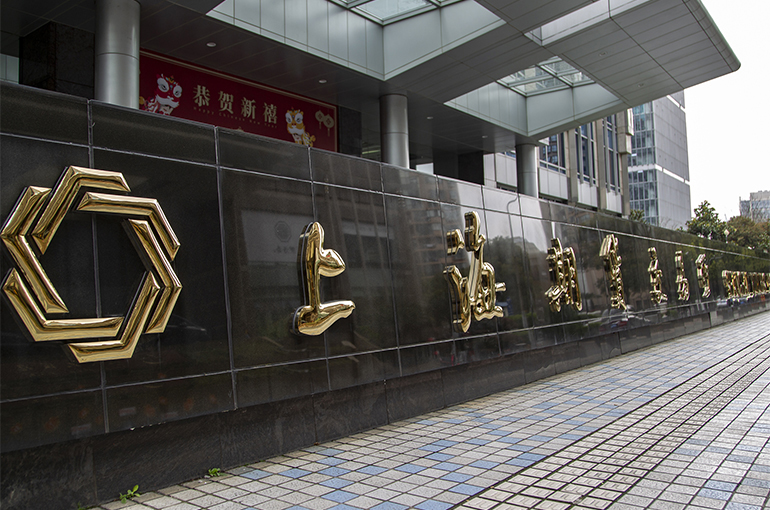 Shanghai Futures Exchange Makes it Easier for Foreign Investors to Access China's Futures Market
Shanghai Futures Exchange Makes it Easier for Foreign Investors to Access China's Futures Market(Yicai) Jan. 29 -- The Shanghai Futures Exchange has rolled out a number of measures to attract more overseas investors in recent years, all of which have contributed to developing a more transparent and fair pricing system, and as a result the ‘Shanghai price’ is becoming more widely applied in global markets.
Trading by foreign investors on the Shanghai Futures Exchange has been expanded to include metals and route index futures from only crude oil futures, said Zhang Jiacong, deputy general manager of futures broker BANDS Financial. Copper and low-sulfur fuel oil futures are particularly active, he added.
And the overseas special broker model recently introduced by the Shanghai International Energy Exchange Center, a unit of the Shanghai Futures Exchange, has greatly boosted BANDS Financial’s customer base by providing more convenient trading channels for foreign customers, he added.
The Hong Kong-based broker now has clients in 10 countries and regions around the world, including financial institutions, firms from all parts of the industrial chain and trading companies, Zhang said.
Foreign investors can now participate directly in China’s futures market through those futures eligible for international trading, Zhang said. This allows them to not only achieve price savings but to also conduct hedging operations in Chinese yuan.
They can also take part through the Qualified Foreign Institutional Investors scheme, which allows foreign investors licensed to buy Chinese yuan-denominated stocks on the mainland, and Renminbi Qualified Foreign Institutional Investor mechanism, which permits overseas investors qualified to invest directly in the mainland bond and equity markets. The advantage of these channels is that there are a wider range of futures available as it is classed as onshore trading, and there are no foreign exchange restrictions.
More Sway
As more overseas traders join China’s futures market, the "Shanghai Price" is having more sway on the international commodity market. For example, the market influence of No. 20 rubber futures products is quite significant. China is the world's largest tire manufacturer and consumer of No. 20 rubber, so many businesses have strong demand for hedging.
The cross-border trading volume of No. 20 rubber futures as the pricing benchmark accounts for nearly 40 percent of China's imports of natural rubber, and many industry players are taking part in derivatives trading related to No. 20 rubber.
New Yongan International’s customers are actively involved in No. 20 rubber futures, General Manager Yao Lv told Yicai.
Overseas investors are very interested in the futures categories on the Shanghai Futures Exchange, that allow foreigners to trade directly, Yao said. This is because it is easy to meet the trading requirements and transactions can be conducted in offshore Chinese yuan. They look forward to more futures being internationally traded in the future, he added.
Improved Services
The design of international futures contracts on the Shanghai Futures Exchange has been looked into extensively, said Fan Songhua, chief commercial officer of BPI Financial Group.
Due to the large market size and good liquidity, there are more investment opportunities and risk management tools for overseas investors, Fan said. Furthermore, the exchange has also fully considered the needs of foreign traders in terms of trading hours, settlement methods and other aspects.
There are 18 categories of futures listed on the Shanghai Futures Exchange and four on the Shanghai International Energy Exchange whose margins have been discounted by 1 percentage point specifically for firms engaged in hedging. This reduces the costs for these businesses and lowers the threshold for industrial customers to conduct risk management on the market.
The Shanghai Futures Exchange also implements two-way measures that reduce risk for foreign traders and facilitates the delivery of goods abroad. For instance, one of New Yongan’s customers obtained 3,500 tons of standard warehouse receipts for low-sulfur fuel oil. New Yongan helped this client have the goods delivered overseas based on the settlement price of the main futures contracts on the trading day.
The Shanghai International Energy Exchange has so far launched five energy and chemical futures, including crude oil futures and options, low-sulfur fuel oil futures, No. 20 rubber futures, international copper futures, and the country’s first shipping index futures, which was launched last August, all of which are open to direct participation by overseas traders.
Overall, the Shanghai Futures Exchange offered 23 types of futures and 9 varieties of options as of August last year. It has ranked among the top three exchanges in the world in terms of the trading volume of commodity derivatives for many years, according to the Futures Industry Association.
Editor: Kim Taylor